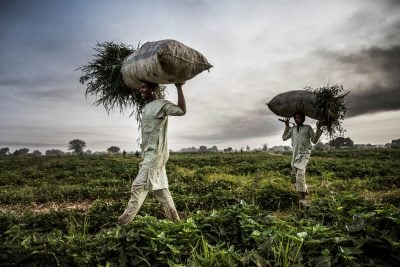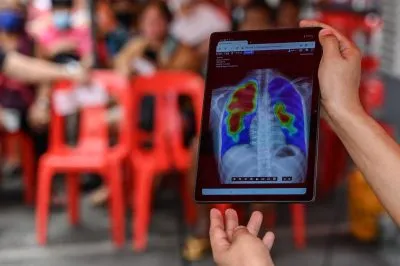The announcement by American pharmaceutical giant Pfizer that it has developed a vaccine that interim analysis shows is 90% effective against Covid-19 marks a potential end to the pandemic but asks serious questions of Africa’s ability to administer the protection.
The vaccine candidate developed with BioNTEch, which remains in trials, must be transported at -70 degrees celsius and stored in a low-temperature fridge for a maximum five days, leading to worries that Africa’s poor infrastructure will delay vaccinations or prevent them completely.
“Storage and distribution will pose a serious problem for use of the [Pfizer] vaccine in Africa,” said John Nkengasong, director of the Africa Centres for Disease Control and Prevention (AfricaCDC), the African Union body coordinating the continent’s pandemic response.
“It will certainly be problematic to quickly establish a cold chain in Africa that will properly handle the distribution.”
Millions of vaccines are distributed across Africa each year and most can survive in a cold box between -2 and -8 degrees celsius.
The Pfizer vaccine, however, is a rarer mRNA vaccine that requires much lower temperatures, experts say.
“The Pfizer vaccine requires extremely cold storage, more sophisticated refrigerators and freezers as well as constant electricity supply, which is a huge issue for low-income countries. Only 40% of Africans enjoy reliable power supply,” said Dr Ngozi Erondu, biosecurity expert at Chatham House’s global health programme.
In its statement announcing the vaccine candidate success, Pfizer acknowledged that there are “challenges related to our vaccine candidate’s ultra-low temperature formulation and attendant storage, distribution and administration requirements”.
According to the World Health Organization (WHO) at least 25% of vaccines are thrown away due to problems in cold chain logistics.
The percentage could be higher for the Pfizer vaccine in Africa, where infrastructure is limited and around 60% of the population live in rural areas.
Wealthy countries first in line
Many African countries cannot afford to build the cold chain facilities needed, leading to fears that the vaccine will be more readily available in richer nations. Fears have also been expressed that African countries will not have the funds to procure sufficient vaccine doses when one becomes available.
Though the vaccine is still in the preliminary stages – the trials continue in December – a host of wealthy nations have signed advance purchase agreements with Pfizer for millions of doses.
The European Union ordered 200m doses, while Japan (120m), the US (100m) and the UK (30m) have also placed orders.
Germany’s health minister said on Monday that Europeans will be able to get their vaccines at the beginning of next year.
Pfizer and BioNTech are competing with 25 other drug makers to provide the world with an effective vaccine.
If further trials are successful, Pfizer expects to produce 1.3bn doses by the end of next year.
Hopes for the developing world rest with other pharmaceutical companies that are developing protein-based vaccines that can be distributed at warmer temperatures. This may be the only way that billions of people across the world are vaccinated, experts say.
Want to continue reading? Subscribe today.
You've read all your free articles for this month! Subscribe now to enjoy full access to our content.
Digital Monthly
£8.00 / month
Receive full unlimited access to our articles, opinions, podcasts and more.
Digital Yearly
£70.00 / year
Our best value offer - save £26 and gain access to all of our digital content for an entire year!
 Sign in with Google
Sign in with Google 



